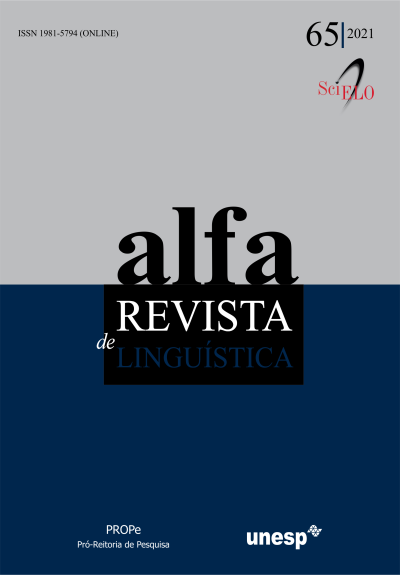The names for dragonfly, in the Linguistic Atlas of Brazil
a study on the motivation of signs
DOI:
https://doi.org/10.1590/1981-5794-e13455Keywords:
Linguistic Atlas of Brazil, brazilian hinterlands, lexical variation, dragonflyAbstract
The names attributed to the libélula (dragonfly), - long, thin body insect, with four transparent wings, which flies and hits the back in the water - Question 85 of the QSL of the Linguistic Atlas of Brazil, they exemplify the complex variational system of the lexicon of Brazilian Portuguese (PB), reflecting facts from the socio-history of each region and, even, each location and each individual. The variants registered in ALiB, in the capitals, suggest that the insect’s name is, in general, of metaphorical basis, motivated by its physical aspect, sound, movements and, equally, through mental associations/analogies with similar ones, resulting, in most cases, in transparent signs. In order to ratify or, perhaps, rectify the results of the capitals, in this work, we analyzed the data collected in the interior of the country from 900 informants, making a total of 225 locations. With the support of this corpus, guided by the theoretical and methodological principles of Lexicography and Semantics, we aim to: (i) verify the dictionary entries of the forms obtained; (ii) describe the variants in terms of morphological aspects; and (iii) analyze these denominations from the perspective of motivational semantics.
Downloads
Downloads
Published
How to Cite
Issue
Section
License
Manuscripts accepted for publication and published are property of Alfa: Revista de Linguística. It is forbidden the full or partial submission of the manuscript to any other journal. Authors are solely responsible for the article's content. Translation into another language without written permission from the Editor advised by the Editorial Board is prohibited.

